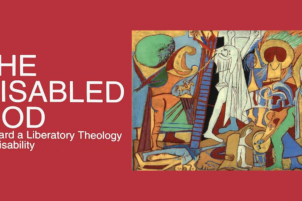I am a proud Jew. I am also a 38-year-old quadriplegic with asthma. Millions of Americans – myself included – are at high risk from the virus and from medical rationing. Sadly, the de facto devaluation of disabled lives in healthcare is nothing new, but there is a current push to make it policy. It is always hard to determine the best way to allocate scarce resources, but Jewish tradition teaches that every life is of incalculable worth. Doctors will have to make enough tough choices, about who is likely to survive, and already will have to make the terrible judgment about who can survive without say, a ventilator, and who will die even if they have one.
Let us not compound this challenge by asking our doctors to place subjective value on individual lives, both because it is unfair to them and because any such subjectivity would necessarily disadvantage those whose life experience is very different from that of the doctor, including people with disabilities. After accounting for likelihood of survival, first-come first-served is the only rational way to decide between two lives of incalculable value.
So, the question becomes, how can we as Jews ensure that this injustice and others do not become reality in this crisis. Philanthropists have a major opportunity to help with innovation and quick resources. Still, while on a call with the Jewish Funders Network today, we learned that more than a billion and a half dollars has gone from philanthropy to deal with the crisis, our elected officials are about to vote again on a measure of more than a TRILLION and a half dollars. Yes, that is trillion with a T.
We must raise our voices to help those in power understand what is right. There are three important steps that our government leaders can take right now to ensure people with chronic health conditions and disabilities – who make up nearly 20 percent of the population in the United States, including millions who are immunocompromised – are not left behind. Please consider raising your voices in the pursuit of justice to share them:
- Ensure Equal Healthcare Priority for People with Disabilities – As the crisis intensified in Italy, the government response to the strain on the healthcare system was to systematically ration healthcare away from people with disabilities. This approach is already illegal under American law, but it still happens nonetheless. In this time of crisis, the U.S. Departments of Health & Human Services and Justice, collectively responsible for safeguarding the rights of people with disabilities under the law, need to send a clear message to hospitals, reminding them to treat people with disabilities equally.
- Ensure That Short-Term Help Doesn’t Do Long Term Harm – Salutatory efforts already are underway to provide financial assistance to the people hardest hit by the impact of this crisis, as well as other payments to stimulate the economy. It is critical that this extra income not interrupt access to lifesaving services for people with disabilities, as people with disabilities may lose these services if they have more than $2,000 saved. Many people with disabilities recommend a temporary suspension of both asset caps and income limits as they apply to SSI, Medicare and Medicaid for the duration of the crisis, lest short-term generosity imperil critical benefits. Similarly, numerous disability groups point out that it is important to avoid efforts like the current proposed provision requesting waiver proposals from the Secretary of Education to divert IDEA funding to fund the coronavirus response. This short-term measure could have devastating long-term impacts for the millions of American students that rely on this funding for their very futures.
- Ensure People with Disabilities Have the Supplies They Need in This Time of Quarantine – The realities of quarantine efforts to keep the community safe have fundamentally changed access to food and necessities. Prescription drug and nutrition programs need immediate changes, including an expansion to allow for 90-day supplies of critical medication, to make sure that people with disabilities have the food and medicine that they need in times of crisis. Furthermore, when individuals with disabilities are diagnosed with COVID-19, it is important they can return home when they no longer require hospitalization. In New York, for example. “developmentally disabled patients with the novel coronavirus are remaining in local hospitals past the point of medical necessity because the residential programs that care for them are not equipped to bring them home safely.”
Just these steps are of incalculable worth, and yet, if you would like to get more deeply involved, there is no shortage of issues to pursue. For example, many official press conferences of governors, mayors, county executives, etc., almost always have included an ASL interpreter; this has not been the case, however, with the President’s briefings to the nation during recent days.
Our organization is one of many on the front lines and we need many allies. And let us be a strong ally to you. For example, as you make your meetings virtual, RespectAbility is available to help you make those convenings accessible to people with disabilities who are deaf and/or blind. Likewise, we can provide additional information on the above and related topics, as well as others so that you can lend your voice to ensure that everyone weathers this crisis as well as possible, including the 60 million people with disabilities.








